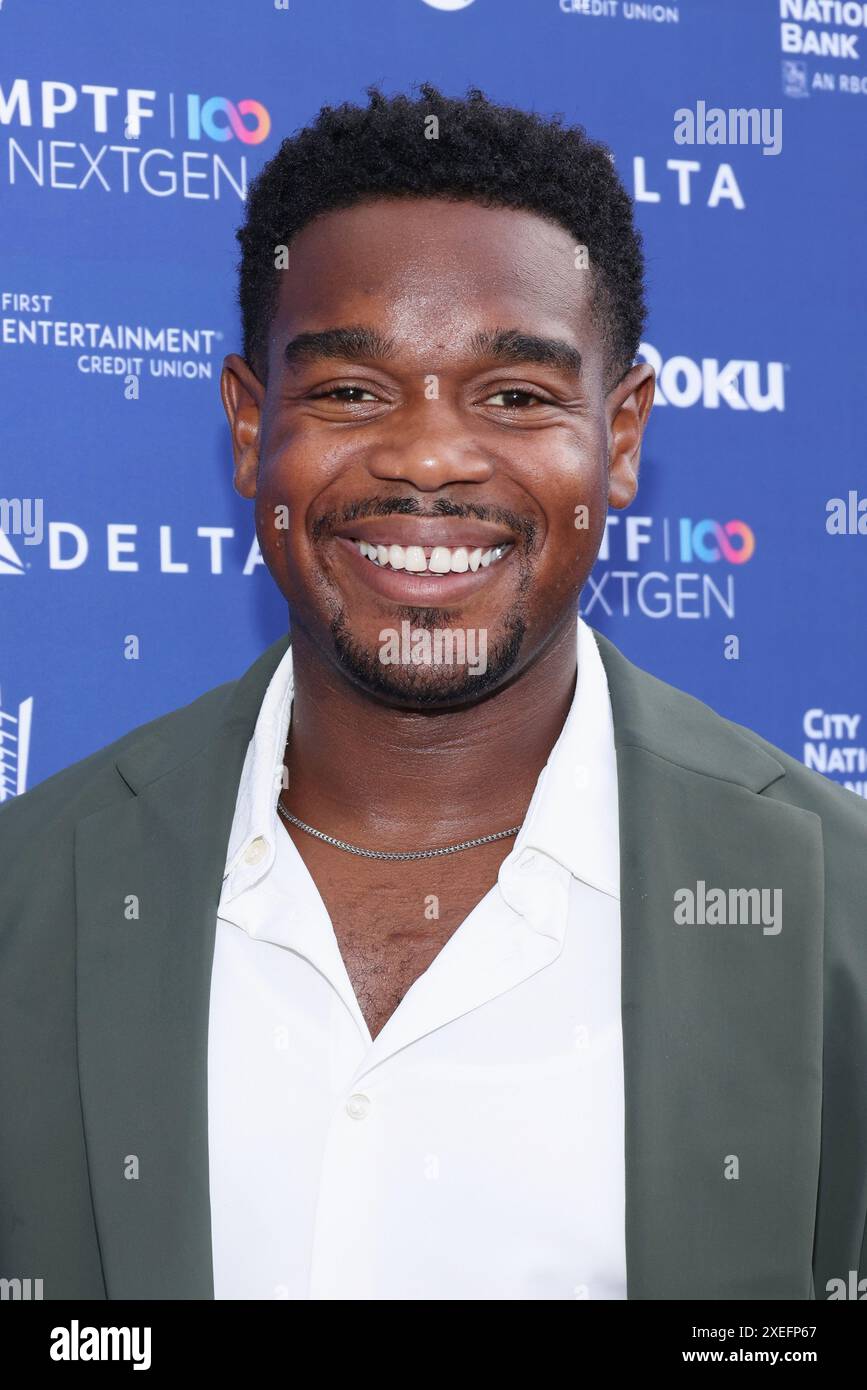Dexter Darden - Finding Clarity In Unique Expressions
Sometimes, you know, the usual pleasantries just won't cut it. There are moments when what's truly needed is a clear, unmistakable message, something that gets straight to the point without any extra fluff. It's about those times when, as a matter of fact, polite talk simply doesn't do the trick.
This idea of needing a direct approach is something that, perhaps, folks who enjoy a certain television program, the one about Dexter, might find quite familiar. That show, you see, often explored what happens when situations become, shall we say, a little too real for just casual conversation. It truly brings up some thoughts about how we get our points across when things get a bit intense.
And then, when you think about communication that truly speaks volumes, your mind might go to the sounds of jazz greats. Folks like Dizzy Gillespie, or, you know, Dexter Gordon, and Stan Getz, who some called Mr. Bossanova, they had ways of talking through their instruments that went beyond ordinary words. They could convey so much without uttering a single sound, which is, in a way, pretty incredible. We also consider how to reach different audiences, like, for instance, with a sheng, a traditional instrument, perhaps framed for our Chinese customers, hoping to connect with them on their own terms.
Table of Contents
- What is Dexter Darden All About?
- When Polite Words Just Aren't Enough
- The Rhythms of Clear Communication
- Speaking to Different Audiences
- Finding Your Voice - A Dexter Darden Approach
- The Art of Getting Your Message Across
What is Dexter Darden All About?
When we talk about "Dexter Darden," it can bring up a few different ideas, especially when we look at the information we have. It's not always about one single person or thing, but sometimes about a way of being or a kind of skill. In this piece, we are thinking about how the name "Dexter Darden" can represent a certain kind of clear, focused communication, the kind that really hits home when other ways of talking fall short. It's about being direct, you know, and making sure your point lands exactly where it needs to.
The ideas we're exploring here come from a very specific set of words, and they guide how we understand "Dexter Darden." It's almost like a puzzle, putting together different pieces to see a bigger picture of what it means to be truly effective in how we share our thoughts and feelings. This approach helps us consider how to be precise, much like someone who has mastered a particular craft or skill.
The Person Behind Dexter Darden?
You might be wondering about the personal details or life story of someone named Dexter Darden. It's a natural thing to want to know more about a person. However, the information provided for this discussion doesn't include any biographical facts or personal data about an individual by that name. Our focus, therefore, is on the concepts and themes suggested by the given text, using "Dexter Darden" as a guiding thought, rather than a specific person.
Since we don't have personal information to share, we can't fill out a table with typical biographical details. This piece is more about the ideas that come to mind when we consider the name and the related text, such as being direct or having a special kind of ability to communicate. It's a bit like looking at a word and seeing all the different meanings it can hold, depending on the setting.
| Category | Details (Not available from provided text) |
|---|---|
| Full Name | Information not provided. |
| Date of Birth | Information not provided. |
| Place of Birth | Information not provided. |
| Occupation | Information not provided. |
| Known For | Information not provided. |
| Other Notable Facts | Information not provided. |
When Polite Words Just Aren't Enough
There are moments in life, you know, when being overly polite or beating around the bush simply won't work. These are often situations where clarity is paramount, where the message needs to land with impact and without any room for misinterpretation. It's about those times when, basically, you need to speak your mind directly, even if it feels a little uncomfortable at first. This kind of straightforward talk can actually save a lot of trouble in the long run.
Think about a situation where safety is a concern, or perhaps when there's a serious misunderstanding that needs immediate correction. In such instances, a gentle suggestion might not be enough. What's required is a clear, concise statement that leaves no doubt about what needs to happen. It's a skill, really, to know when to shift from soft words to something more firm and direct.
The TV Show Dexter - A Look at Directness
The television show about Dexter, which many people enjoy, really gives us a picture of this idea of direct action when other methods fail. The main character, Dexter Morgan, often finds himself in situations where the usual ways of dealing with things just don't apply. He has, you know, his own very specific code and a direct way of handling matters that he believes justice demands.
Fans of the show are quite familiar with how Dexter operates. He doesn't waste time with subtle hints or indirect approaches when he has a goal in mind. His actions, though often questionable morally, are always, in a way, incredibly direct and to the point. This aspect of the show, in some respects, highlights the idea that sometimes, for better or worse, a very straightforward method is chosen to get something done. It makes you think about how different people approach what they see as necessary.
This connection to the show helps us think about "Dexter Darden" as a concept of precision and a certain kind of determined focus. It’s about having a clear aim and moving towards it without much hesitation. The show, for instance, often shows the main character planning his moves with a lot of thought, making sure every step is just right to achieve his specific outcome. This kind of careful planning, followed by direct action, is a significant part of the show's appeal.
The Rhythms of Clear Communication
Communication isn't always about words. Sometimes, the most powerful messages are sent through other means, like music. Think about how a piece of music can make you feel something deeply, without a single spoken word. It’s a language that goes beyond the usual, you know, and connects with people on a different level. This idea of communicating without words is pretty fascinating, if you ask me.
Jazz musicians, in particular, are masters of this kind of non-verbal expression. They use their instruments to tell stories, to express complex emotions, and to have a conversation with each other and with their audience. It's a very spontaneous and genuine way of talking, one that relies on feeling and intuition as much as it does on technique.
Dexter Gordon and the Language of Jazz
When you think about jazz, some names just pop into your head. Dizzy Gillespie, with his amazing trumpet work, or Stan Getz, who brought us the cool sounds of bossa nova, are certainly among them. And then, there’s Dexter Gordon. He was, you know, a saxophone player whose sound was so distinctive, so full of character. He had a way of playing that was both powerful and incredibly expressive.
Dexter Gordon’s music was, in a way, a masterclass in direct communication through sound. His solos weren't just a string of notes; they were statements, full of feeling and purpose. He had a unique voice on his instrument, and when he played, you could almost hear him talking to you. It was, like, a very personal conversation that he invited you into. This kind of musical "talk" is very much like the idea of "Dexter Darden" – a clear, strong presence that communicates without any unnecessary frills.
His ability to improvise, to create something fresh and meaningful on the spot, shows a kind of quick thinking and directness that is truly remarkable. He didn't need to follow a strict script; he just expressed what he felt, right then and there. That, in essence, is a powerful form of communication, one that cuts straight to the heart of things. It really highlights how much can be said without saying anything at all, just through pure expression.
Speaking to Different Audiences
Reaching out to different groups of people, with their own unique backgrounds and ways of seeing the world, is a really important part of getting your message across. What works for one group might not resonate with another, so it's about being thoughtful and, you know, finding the right way to connect. It takes a bit of care to make sure everyone feels included and understands what you're trying to share.
This means considering cultural differences, language variations, and even what people find interesting or familiar. It’s about building bridges, really, between different perspectives. When you communicate well across various groups, you're not just sharing information; you're building connections and fostering a sense of shared experience.
The Sheng - Bridging Worlds for Dexter Darden
The idea of having a sheng, a traditional Chinese musical instrument, framed for Chinese customers, speaks volumes about this effort to connect with different audiences. It's a thoughtful gesture that shows respect for another culture and an effort to communicate in a way that feels personal and familiar to them. It’s a very tangible way of saying, you know, "We see you, and we want to connect with you on your terms."
This act of presenting something culturally specific, like the sheng, is a form of communication itself. It’s a silent message that says, "We understand and appreciate your background." For "Dexter Darden," this represents the ability to adapt one's message, or one's offering, to suit the specific needs and preferences of a particular group. It’s about being effective not just in what you say, but in how you say it, and to whom.
It highlights the importance of cultural sensitivity and the power of non-verbal cues in building rapport. By offering something like a sheng, you're creating a shared point of reference, a common ground where communication can happen more easily. It’s a subtle yet powerful way to open up a conversation and make people feel at home, which, you know, is pretty essential for good connections.
Finding Your Voice - A Dexter Darden Approach
So, how do all these pieces fit together? The directness of certain conversations, the focused intensity of a TV show character, the expressive power of a jazz musician, and the thoughtful gesture of cultural connection – they all point to a central idea. This idea, which we can call the "Dexter Darden approach," is about finding your own clear, effective way to communicate. It’s about having a voice that truly gets through.
It’s not about being aggressive, but about being authentic and purposeful. It’s about understanding when to be gentle and when to be direct, and how to tailor your message so it resonates with the people you’re trying to reach. This kind of communication, honestly, is a skill that takes practice, but it's incredibly rewarding when you get it right.
This approach means being clear about what you want to say, much like Dexter Gordon was clear in his musical statements. It also means being aware of your audience, just as the sheng is offered with specific customers in mind. It's about being, in a way, very thoughtful in how you present yourself and your ideas.
The Art of Getting Your Message Across
Ultimately, getting your message across is a true art. It requires more than just speaking words; it demands an understanding of timing, tone, and the people you’re speaking to. Whether it’s in an emergency, through a piece of music, or by recognizing cultural differences, the goal is always the same: to make sure what you want to convey is truly received and understood. It’s a continuous learning process, really, about how to connect with others in meaningful ways.
This idea of "Dexter Darden" becomes a symbol for this kind of skillful communication. It represents the ability to be precise when needed, expressive when appropriate, and always, you know, focused on making a real connection. It’s about mastering the many ways we can share our thoughts and feelings, ensuring they land with the impact we intend.
It’s about recognizing that sometimes, a direct approach is best, like when polite talk just isn't effective. Other times, it's about finding a unique form of expression, like the powerful sounds of jazz. And always, it’s about being mindful of who you are communicating with, much like offering a sheng to connect with Chinese customers. These various threads, you know, come together to form a complete picture of effective interaction.
This article has explored the concept of "Dexter Darden" through the lens of effective and direct communication, drawing inspiration from various elements in the provided text. We've considered situations where straightforward talk is necessary, as hinted by the TV show Dexter. We've also looked at how powerful messages can be conveyed without words, using the example of jazz musicians like Dexter Gordon. Finally, we touched upon the importance of cultural understanding in communication, illustrated by the presence of a sheng for Chinese customers. The overall discussion points to the value of finding clear and impactful ways to share ideas and connect with different people.

Dexter Darden attends the MPTF NexGen Annual Summer Party at NeueHouse

Dexter Darden (Suit) Half Body Buddy Cutout - Walmart.com

Dexter Darden - Actor